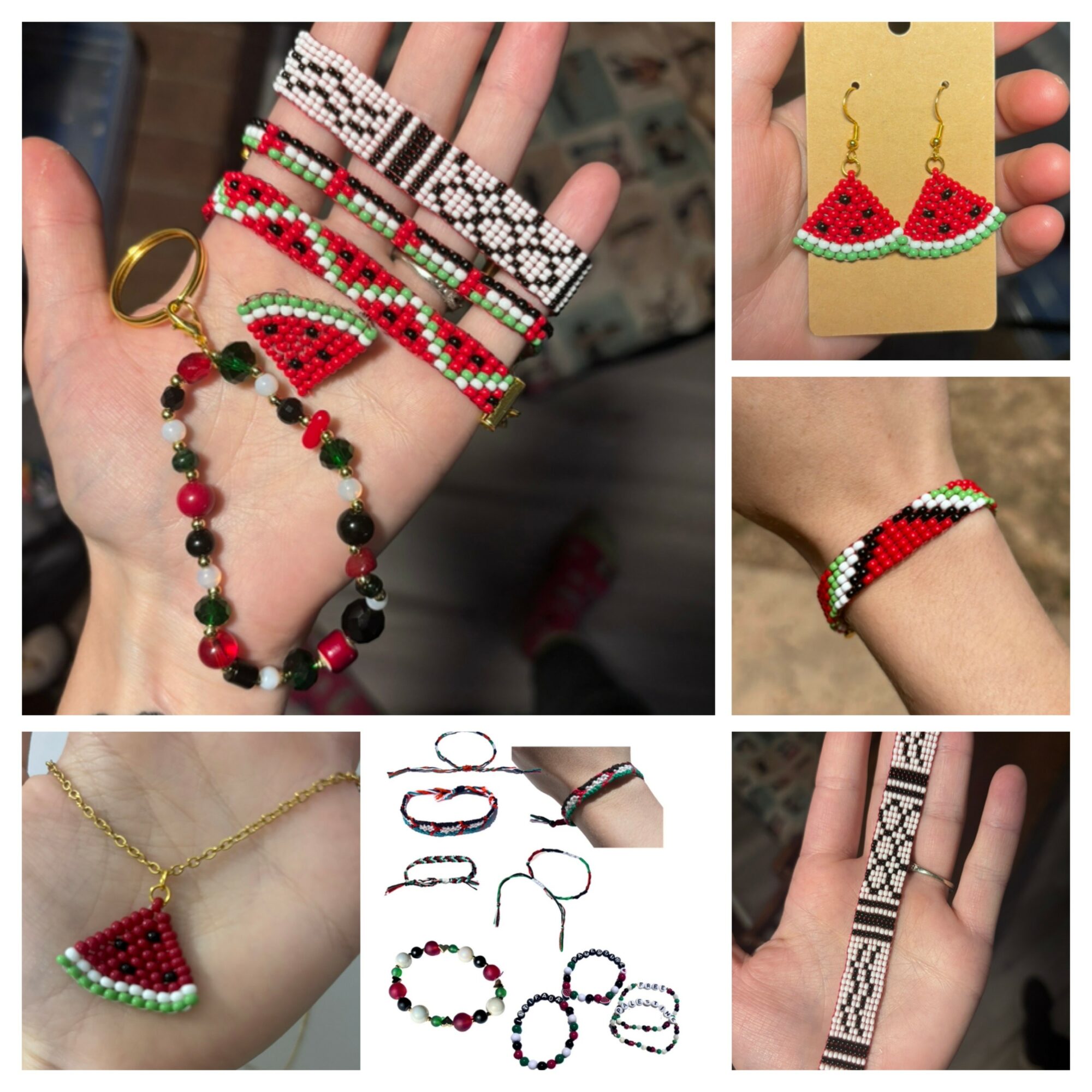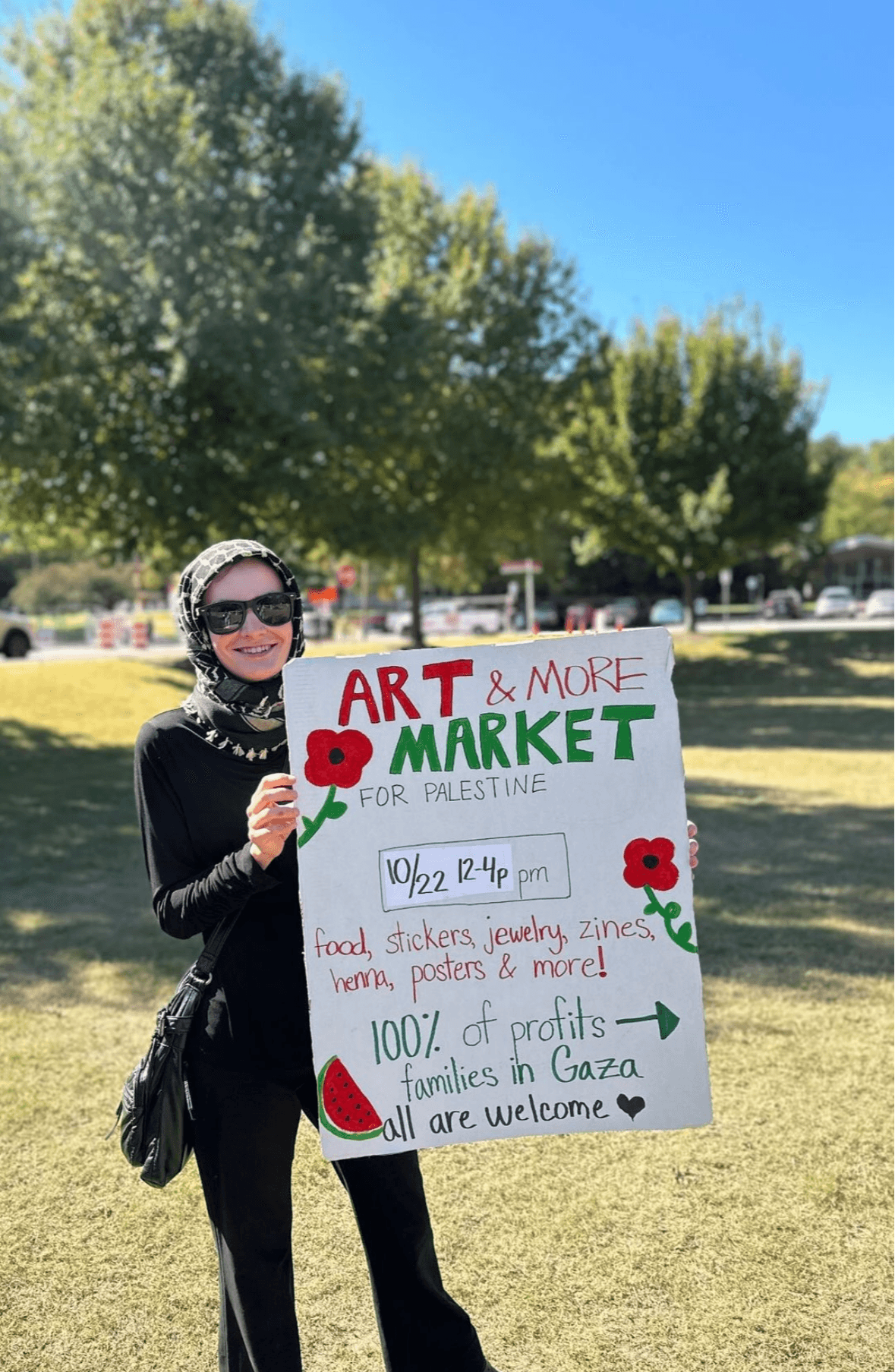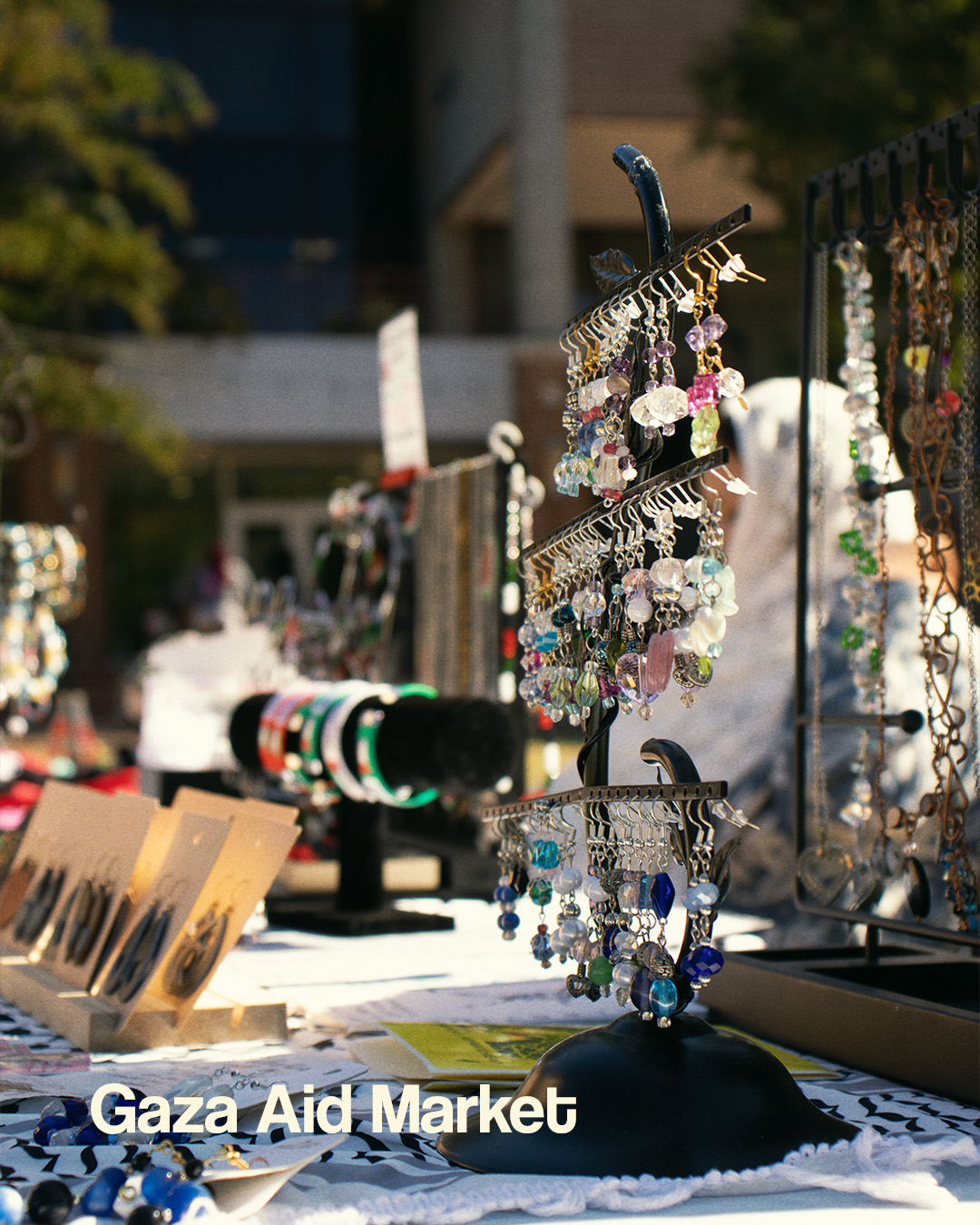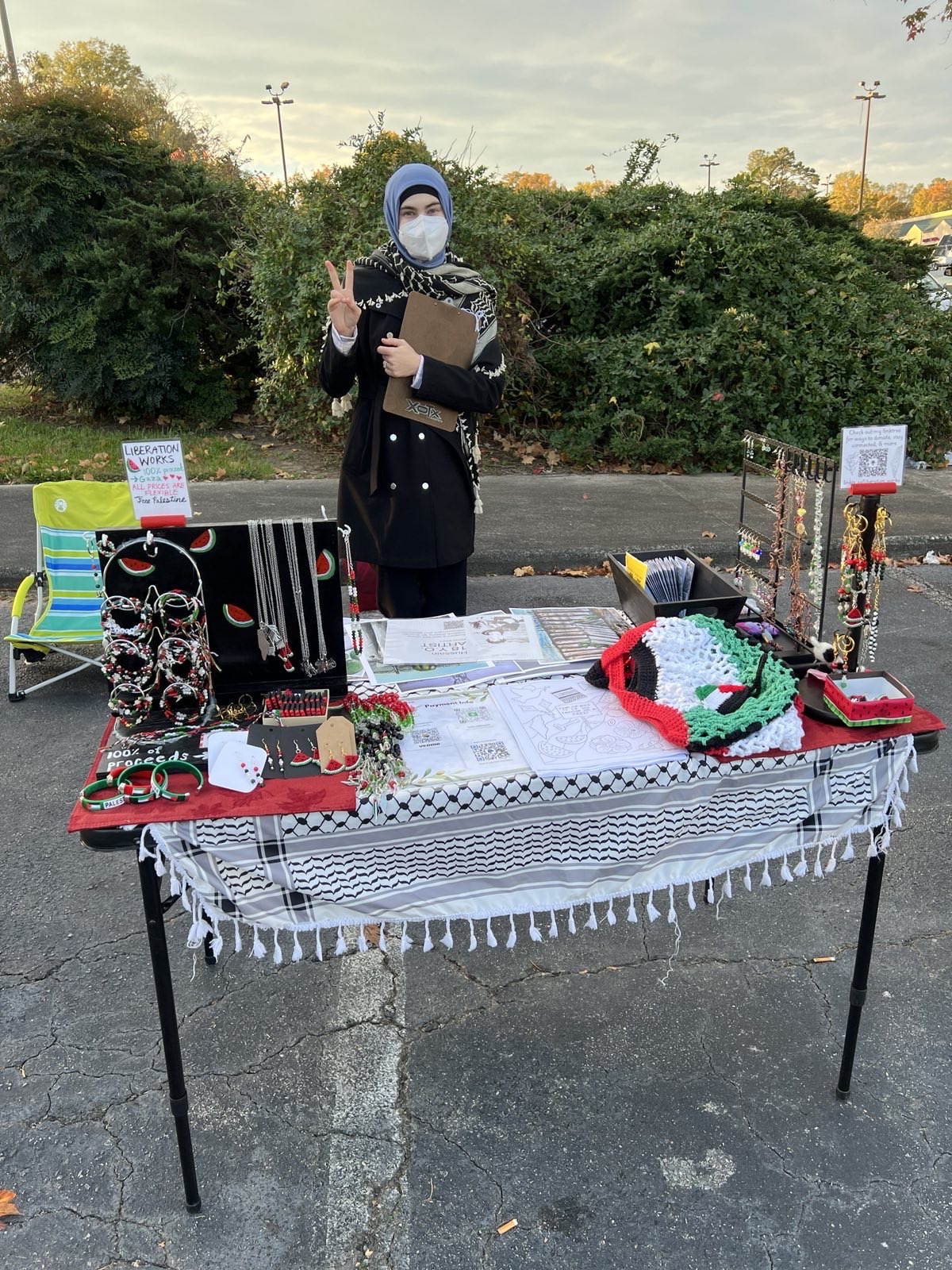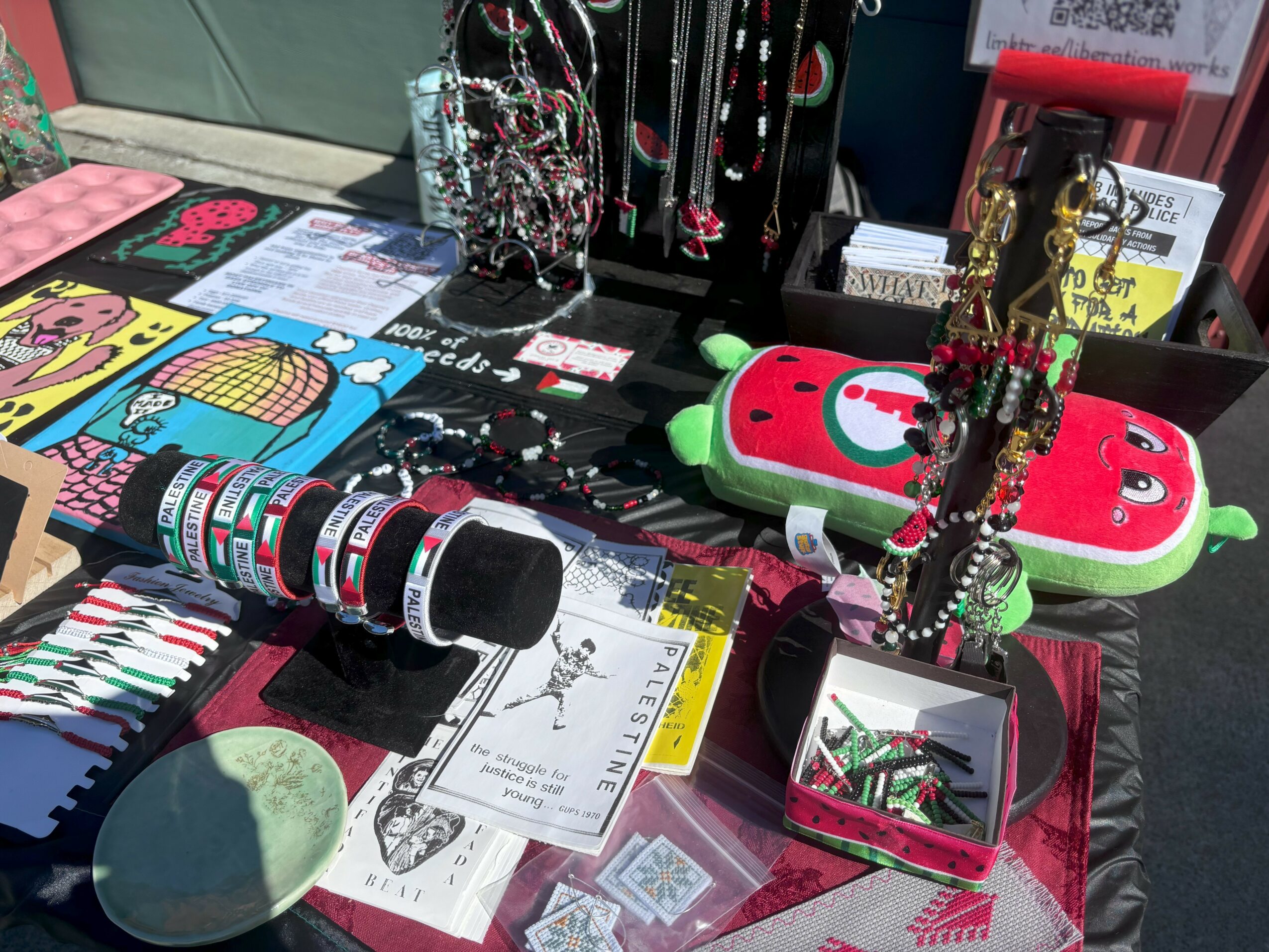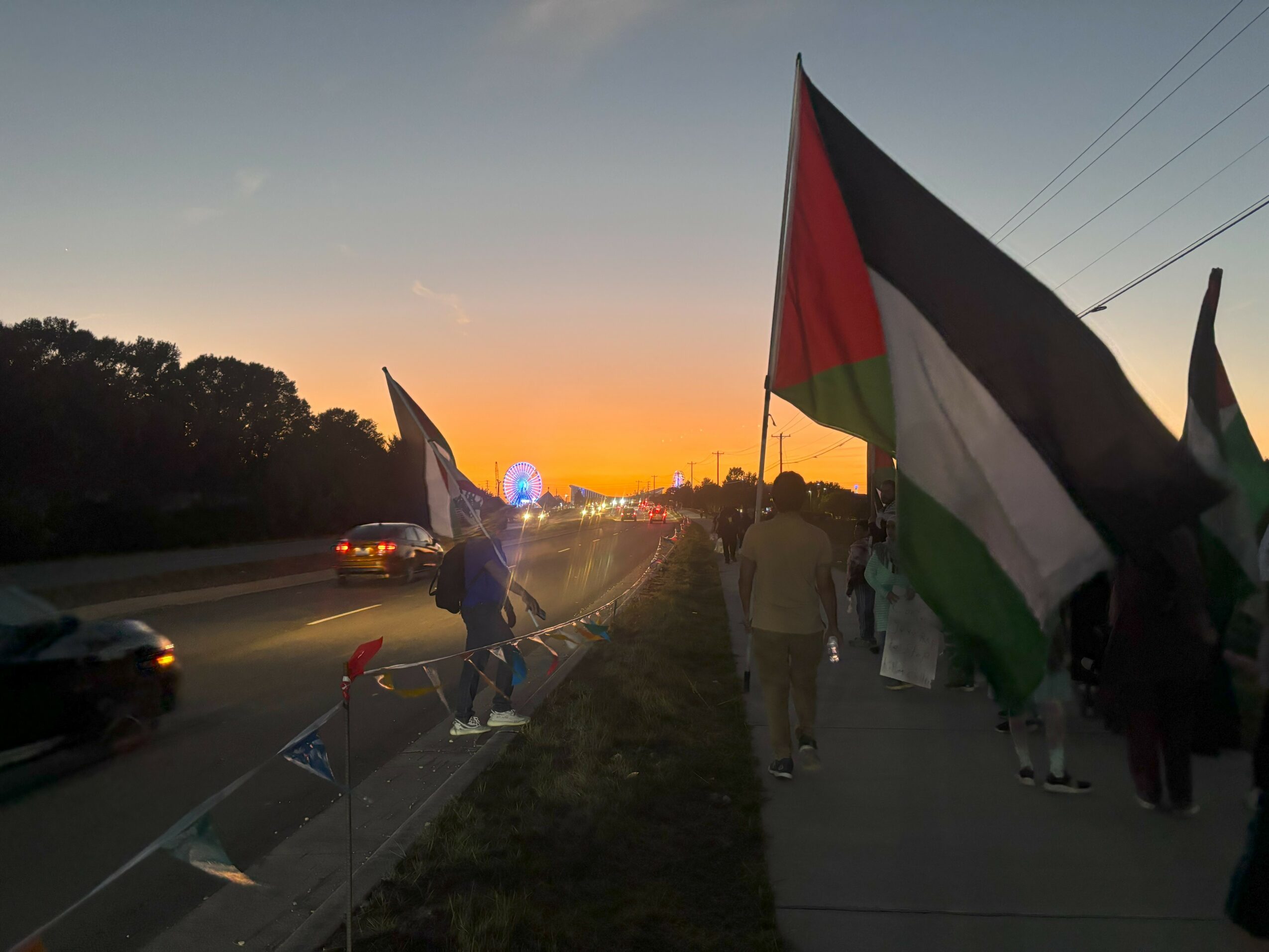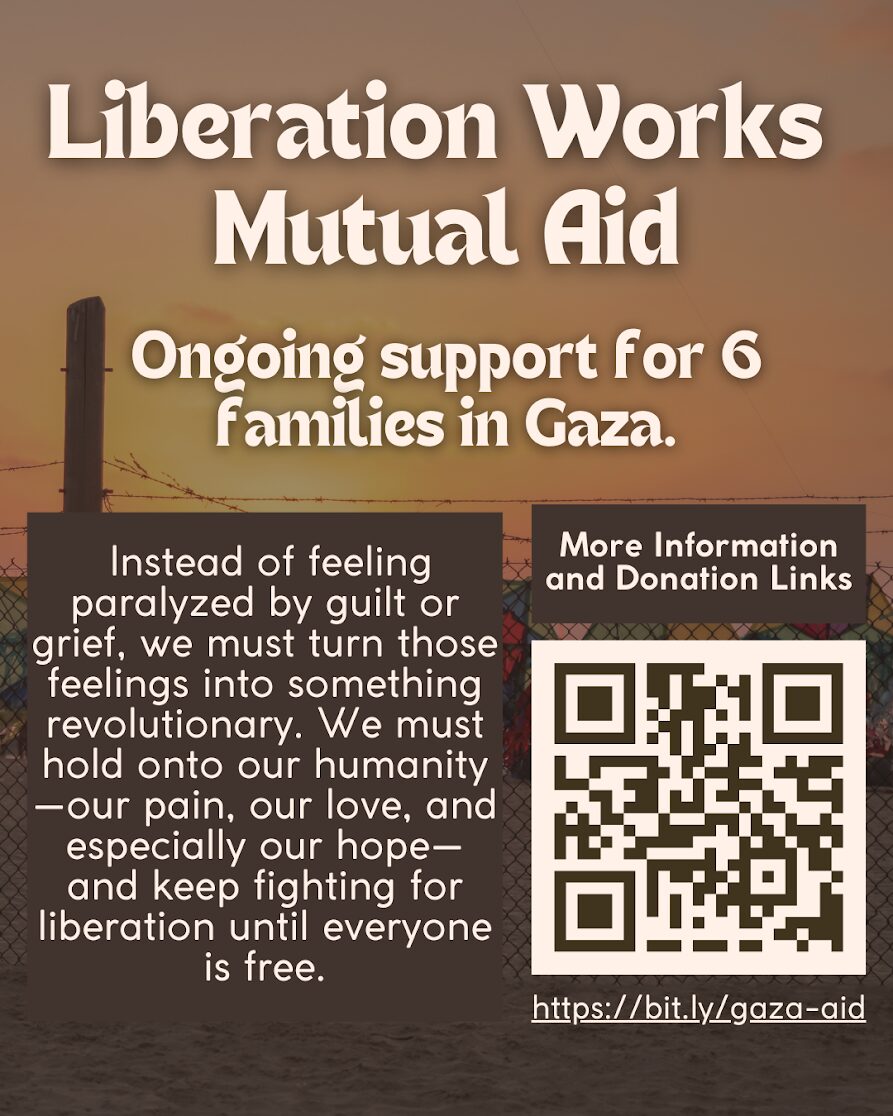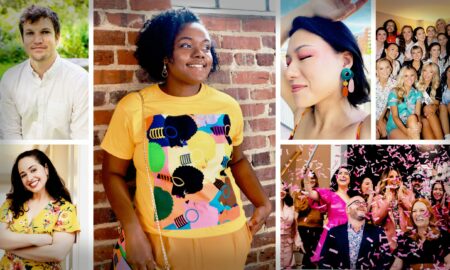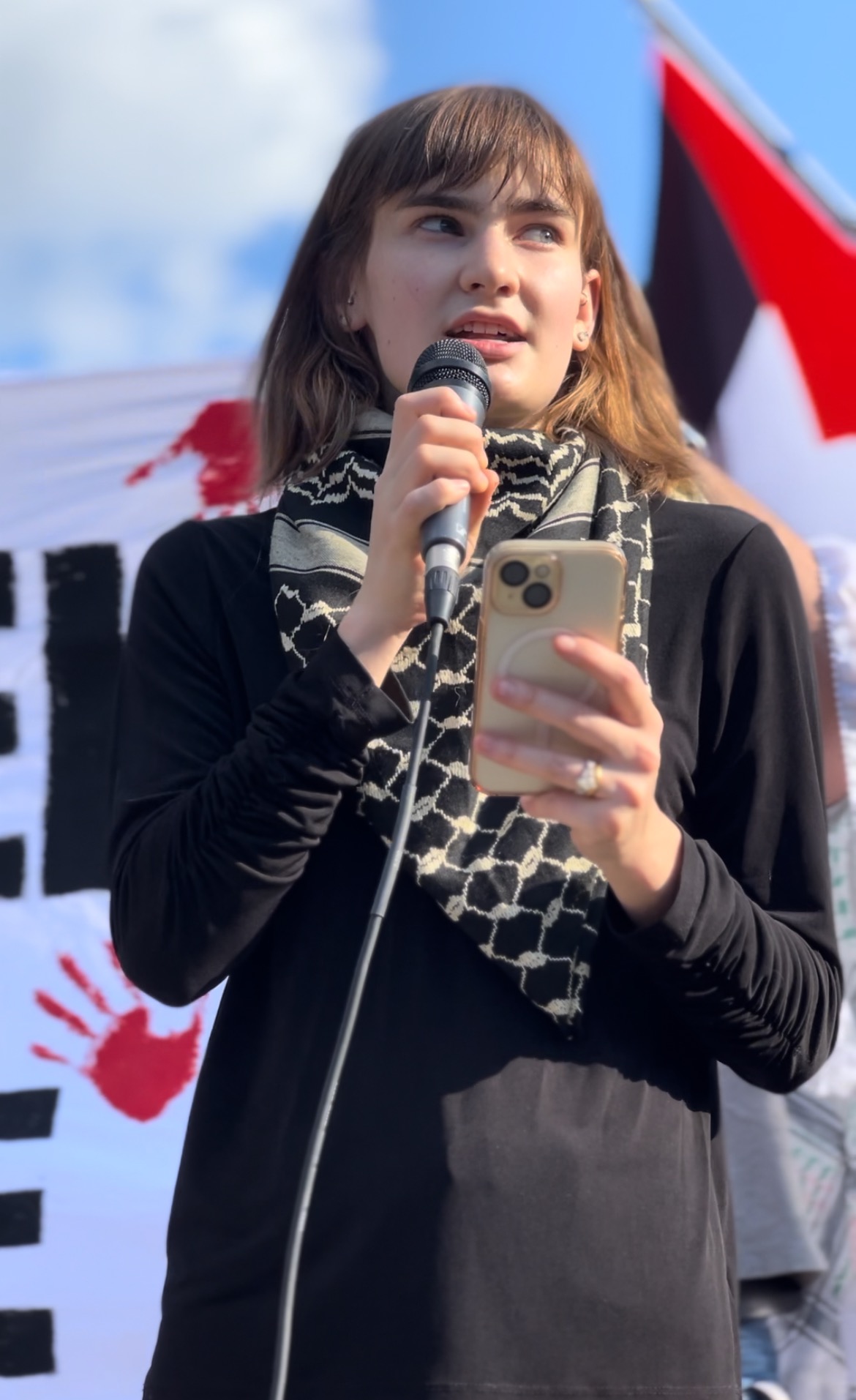

Today we’d like to introduce you to Kelly Holsopple
Hi Kelly, thanks for joining us today. We’d love for you to start by introducing yourself.
I started raising money for Palestine this past May, though I wish I’d started a lot sooner. I started by selling handmade jewelry online to collect donations, and in June, I helped organize a market for Gaza mutual aid. After that, some friends and I formed Triangle Art 4 Aid, a group of artists and organizers dedicated to supporting Palestinian families through mutual aid. Since then, we’ve put on several markets and fundraisers.
Beyond my work with TA4A, I stay active in protests, talk to local businesses about boycotting Israeli products, and use social media to raise funds, share information on the zionist occupation’s brutality, and try to amplify Palestinian voices. I also talk to as many people as possible to challenge the way mainstream media deliberately hides the horrors of the settler colonial project, backed by its biggest enabler, the U.S.
I believe direct donations are crucial. Aid from large organizations often never reaches the people who need it most. Much of it is seized by occupiers and resold by merchants at criminal margins. On top of that, prices for basics in Gaza keep rising, and most Palestinians have been displaced multiple times, forcing them to leave behind everything just to survive.
It’s essential to remember that Palestine isn’t a charity case. Mutual aid isn’t about “saving” anyone—it’s about standing together. We’re working toward a world where everyone has autonomy over their own resources. This genocide has pushed Palestinians in Gaza into survival mode, and mutual aid has become a lifeline. While mutual aid alone won’t end this genocide, it does sustain Palestinian survival, and their existence is an act of resistance. Instead of feeling paralyzed by guilt or grief, we must turn those feelings into something revolutionary. We must hold onto our humanity—our pain, our love, and especially our hope—and keep fighting for liberation until everyone is free.
If Palestinians in Gaza can hold onto hope after all they’ve been through, then holding onto hope is our duty, too—a duty to reject the individualism that helps sustain genocide. No amount of money can make up for even an hour spent enduring genocide, but mutual aid is still an act of love for a people who have had everything taken from them. It’s our way of saying that we, not governments or states, take care of each other.
Moving forward, I’m committed to continuing this work, raising mutual aid funds in creative ways, building community, learning as much as I can, and doing all I can to uplift and center Palestinian voices. Our siblings in Palestine are tired—they’ve faced unimaginable violence, famine, displacement, illness, loss, and fear for over a year now. We owe it to them to show up with everything we’ve got, using our skills and resources and making sacrifices for our collective liberation.
Alright, so let’s dig a little deeper into the story – has it been an easy path overall and if not, what were the challenges you’ve had to overcome?
It definitely hasn’t been a smooth road. When I first started, one of the biggest struggles was just getting people to see the value of mutual aid. So many people are used to donating once a year to a nonprofit or NGO and then holding onto their wealth, which makes it hard to get consistent support. Our society trains us to value hoarding wealth and to be suspicious of individuals asking for financial help, especially if it’s outside of the typical nonprofit model. That was a huge obstacle for me, so I focused on educating people about what mutual aid is and why it’s necessary, trying to build trust along the way.
On a personal level, it was also a struggle to take care of myself well enough to keep going. The need is overwhelming, and there were times I’d go nights without much sleep, just trying to manage it all. I’ve had to learn that boundaries are essential—not in a selfish way, but because I can only show up for others fully if I’m taking care of myself. This is still a work in progress, honestly.
Another struggle is how isolating this work can feel. When you care deeply about something like this, and you look around and see people just going on with life, oblivious or even indifferent to the suffering of people living through genocide, it can feel lonely. But community has been key. I’m incredibly grateful for the people I’ve met along the way and for my friends who are in this with me. Building that community means everything to me, and it’s something I want to keep prioritizing so that we can all engage in the struggle for liberation together.
Alright, so let’s switch gears a bit and talk business. What should we know about your work?
I am a community organizer. I raise mutual aid funds for Palestinians in Gaza who are living under constant threat and hardship. My main efforts go into Triangle Art 4 Aid, a collective I helped create with other artists and organizers. We use art-based events and markets to raise mutual aid funds for Palestinian families. I also founded Liberation Works where I sell jewelry, crafts, and eggs from my parents’ animal sanctuary to raise money for Palestine.
I also use social media to amplify Palestinian voices and share their stories. I am active in protests and strive to speak out against the brutal occupation whenever I can.
I am most proud of speaking at the statewide protest on October 5th to share a speech written by my Palestinian friend in the steadfast Gaza Strip. I am also proud of the amount of money my community has raised for Gaza.
I think my work stands out because of its focus on mutual aid and solidarity over traditional charity models of giving. I am proud of the trust and community we have built. I hope that we have shown that this work is about collective liberation, not one-time donations. The Palestinians that we raise money for are not passive recipients of charity but our partners in the struggle for liberation.
I am especially proud of the connections we have built. I work directly with Palestinian families, artists, and organizers, and every dollar we raise goes directly to people on the ground. I will strive to continue this work in ways that are rooted in solidarity, community, and revolutionary optimism.
Can you talk to us about how you think about risk?
I think taking some measured risks is a part of staying committed to my values. There are constant challenges involved with organizing and mutual aid for Palestine. I have had my social media accounts banned and bank accounts threatened with closure. Speaking openly about Palestine is not always received well, but I do not see shying away from the truth as an option if I truly want to support Palestinian liberation.
I think about what is at stake if I do not act. We are facing systems that thrive on apathy and compliance, and for me, risking my comfort and security is worth it to stand up for what I believe in. I am constantly inspired by the steadfastness of Palestinians in Gaza, and if they can push forward under unimaginable circumstances, then taking risks to support their survival and amplify their voices is more than worth it.
Contact Info:
- Website: https://linktr.ee/liberation.works
- Instagram: https://www.instagram.com/poppycoda/
